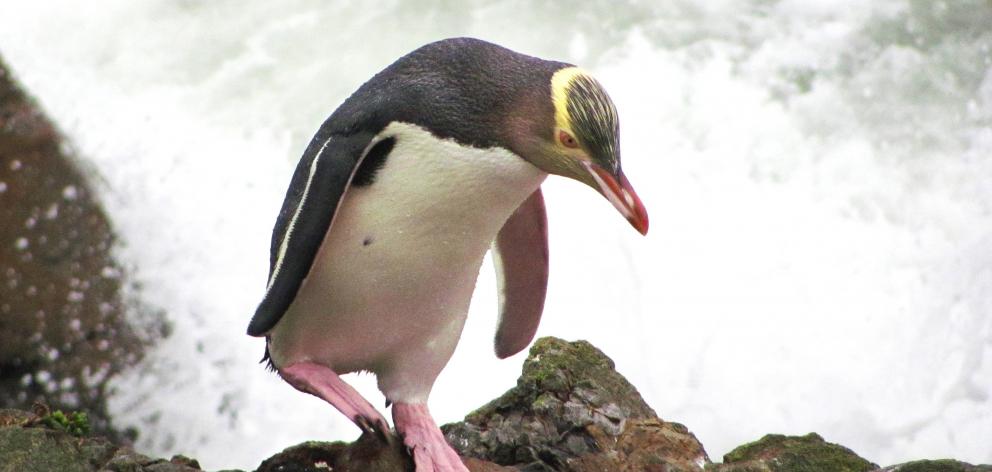On Monday, University of Otago zoologists called for beach closures during the breeding season after finding fewer chicks died at a closed beach near Dunedin than at a nearby beach where public access was unrestricted.
There are 53 known breeding sites for yellow-eyed penguins on the Otago coast, about a third of which are publicly accessible.
The Department of Conservation (Doc) is the only authority that can close a beach to protect breeding wildlife.
Doc Otago coastal operations manager Annie Wallace yesterday said it was not a step taken lightly; it had to balance the management of access to conservation lands and waters on behalf of the public.
"Any restrictions on public access have to be well-justified."
There were many threats to yellow-eyed penguins and it was not a "one solve-all" approach, she said.
"The public can do their bit by taking good notice of local controls that have been put in place to protect penguins."
The Yellow-Eyed Penguin Trust, which closes access to some of its privately-owned breeding sites during the breeding season, also said a lot of thought needed to go into closing beaches temporarily.

"It depends on what sites you do look at and obviously [the researchers] found a big difference there, but the trust has also got beaches that are not open to anybody and we do very minimal work in the area, and yet there is significant decline there," general manager Sue Murray said.
She too said reducing visitor numbers was only one of the things that could be done to protect yellow-eyed penguins.
Summer rangers, such as those employed in a joint exercise by Doc and the Dunedin City Council, educating visitors to coastal areas, was, for example, a successful programme.
Council parks and recreation services acting group manager Scott MacLean said its role was limited to controlling public access to tracks that crossed council-managed reserves.
Any decision to close public beaches would involve discussions between Doc and the council, but Doc was ultimately responsible for such closures.
There were believed to be few, if any, additional sites considered appropriate for seasonal closures at this stage, he said.
Melanie Young, of the University of Otago zoology department, helped conduct the study.
She believed a "handful" of beaches where people could get too close to nests should be closed — she did not name them, but said in most cases keeping people away from the birds was possible without closures.
Educational work was too often counteracted by the number of people going to see penguins, including at Nugget Point in the Catlins and Bushy Beach near Oamaru.
"I think what we are seeing is that a lot of our infrastructure is now effectively obsolete because it cannot keep up with the mass, unregulated eco-tourism that we are experiencing."
Closing beaches for the breeding season did not seem to worry people.
"As far as I am aware, no-one has been upset about that. People respect it."
"Where we have public conservation land that is bordered by private farm land ... sometimes that is closed for lambing ... and everybody respects that, it is the same rationale, but instead we are saying let’s protect penguins rather than sheep."
Comments
Well cattle are clearly more important than a few penguins! Or maybe the DOC are not interested because there is nothing to shoot, poison or trap? We are asked to kill wildlife in our own backyards and support a national extermination of pests but DOC say, "Any restrictions on public access have to be well-justified." The numbers of these penguins are so critical that even if one extra bird survives to adulthood it would be justified.
Come on Dunedin, the world is watching! Mayor Hawkins, now is the time to speak up on a green issue that really matters, surely helping to save a species is more important than putting another diesel bus on the road? Councillor Walker you have been a great champion for the Wild Life Hospital, surely you can help?
The public backlash against further beach closures would do nothing to help promote a positive message for wildlife conservation in general especially given that the research is limited to only two beaches. There have been large drops in Yellow Eyed Penguin numbers on closed beaches over the same time frame which suggests the problem is somewhat more complex than just visitor impacts.
Public backlash? Doubtful. You can have the penguins, or have fewer. Human impact tends to generate loss. It's not permanent closure.












